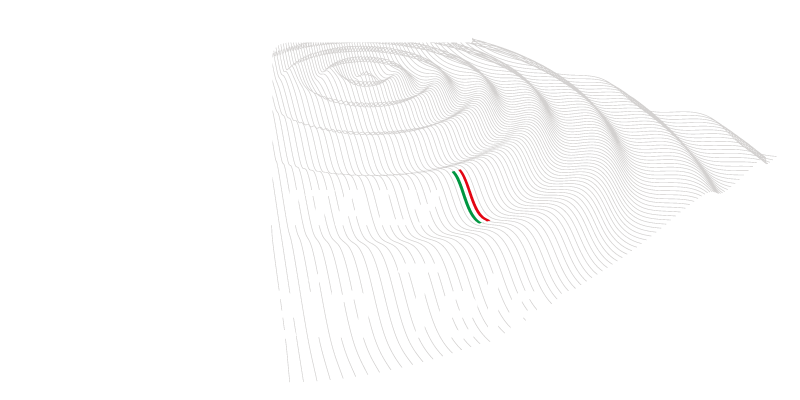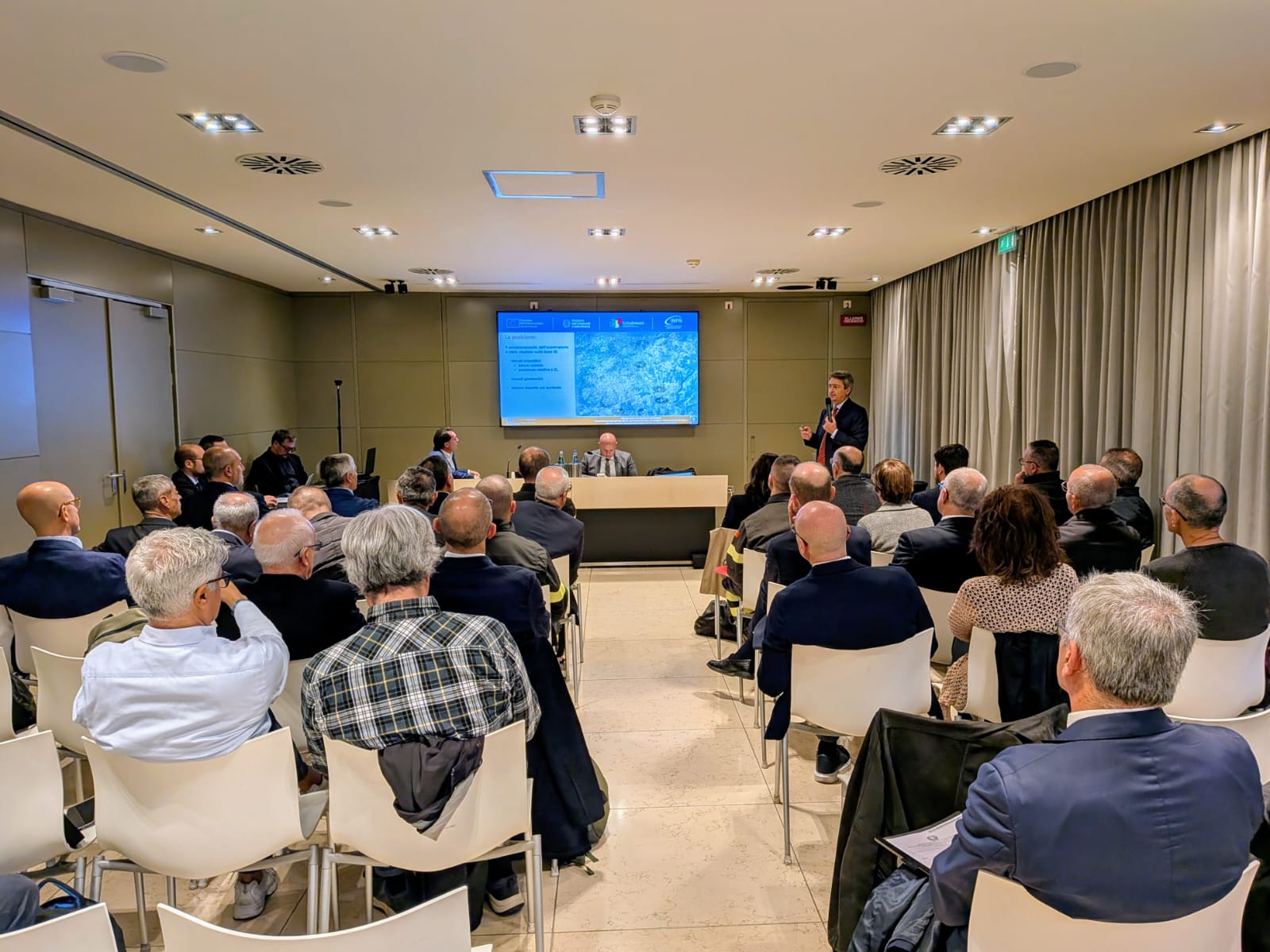Green light for the possible construction of the Einstein Telescope in Sardinia, for both of the two alternative configurations — the “L” shape and the triangular one. The green light came from the preliminary Conference of Services on the preparatory study for the development of the technical, economic, and environmental feasibility project of the future gravitational wave observatory, which took place today, Friday, November 7, at the T-Hotel in Cagliari.
The conference, promoted by the National Institute for Nuclear Physics (INFN) and convened by the Ministry of Infrastructure and Transport, represents a key step in the authorization process and in the collaboration among state, regional, and local administrations and the various entities involved in the project. These were called to express their observations and recommendations on the pre-feasibility study for the Einstein Telescope (ET). The study was carried out by a consortium of Italian companies (including an important group of Sardinian firms) operating internationally, led by Rocksoil S.p.A., within the framework of the NRRP ETIC project — aimed at supporting Italy’s candidacy to host the Einstein Telescope in the Sos Enattos area, in the province of Nuoro — and constitutes the main component of the Italian proposal, with a level of detail sufficient to support the European-level candidacy.
The study, which includes the execution of surveys and the preliminary environmental impact assessment for the infrastructural, construction, and plant engineering works (both underground and on the surface) in the candidate area, developed both possible configurations of the experiment currently under evaluation by the scientific community: a triangular-shaped detector with sides 10 kilometers long, and an L-shaped detector with 15-kilometer arms.
At the end of an extensive discussion that gathered the opinions of all the entities involved, the conference unanimously issued a positive assessment for both projects. This is a substantial act confirming the feasibility of building the Einstein Telescope in Sardinia, thereby strengthening the Sos Enattos site’s candidacy in the race to host the future research infrastructure. The other contenders are the Euregio–Meuse–Rhine region, at the border between the Netherlands, Germany, and Belgium, and a site in Saxony (Germany), whose candidacy was recently formalized. Among all the competing sites, the Sardinian one is the first to obtain favorable technical opinions through the instrument of the preliminary conference of services.
«With today’s green light, our country is taking a decisive step forward, confirming its ability to look to the future and to host one of the most innovative scientific infrastructures currently under development. This achievement gives concrete strength to Italy’s candidacy — the result of a shared commitment between institutions, the scientific community, and local stakeholders — in which the Government and the Ministry of University and Research have always firmly believed and invested», emphasized Minister of University and Research Anna Maria Bernini. «Einstein Telescope is a scientific and technological challenge of extraordinary significance and a unique opportunity for Italy. It is a project that projects our country into the future of astrophysics and the exploration of the universe, enhancing human capital, research, and technology, and promoting the development of an exceptional territory like Sardinia, which is destined to become a laboratory of innovation and knowledge of international importance».
«I am particularly proud of today», began Alessandra Todde, President of the Sardinia Region, as she greeted the attendees. «We have reached a crucial milestone in an ambitious journey that we have undertaken with determination. From the very beginning of my term, we have worked hard to support INFN and the design team in all their requests, in synergy with Minister of University and Research Anna Maria Bernini, who has always firmly supported and continues to support the Sos Enattos candidacy».
«In these months», Todde explained, «we have adopted a method based on study and involvement: we are demonstrating, through concrete actions, that in Sardinia we can work as a team and create a system. We are confident in the strength of our candidacy, which we will continue to pursue with the unconditional support of the Region, because we believe that the Einstein Telescope represents not only a major international scientific infrastructure that will bring prestige to Italy but also an opportunity for redemption for a land with enormous yet untapped potential, due to decades of short-sighted policies».
The President also emphasized that «we are the first candidate site to hold the preliminary conference of services. In a country often criticized for excessive bureaucracy and slow administrative processes, I think this is a significant signal».
«Today’s milestone is crucial in Italy’s candidacy process to host the Einstein Telescope», highlighted Marco Pallavicini, member of the INFN executive board. «Having preliminary approval of the project by local and national authorities, in compliance with Italian law, will be a strong point in the European competition. In particular, we will bring this result to the attention of the BGR (Board of Governmental Representatives), the council of representatives of European ministries currently managing the competitive process».
«I want to thank the public works superintendency, which agreed to assist us in this procedure by making its professionalism and experience available, the presidency of the Sardinia Region, and the steering committee, especially Dr. Raffaele Marras, for providing us with the guidance needed to carry out the best possible feasibility study», said Gaetano Schillaci, engineer at the INFN National Laboratories of the South and project manager for the preparatory study. «This favorable opinion is the recognition of more than a year of work that would not have been possible without the support of the INFN team of engineers and management. It is a favorable opinion not only for the scientific community but also for the local communities and the territory that welcomed us, allowing us to work with serenity and the joy of living in this wonderful land».

